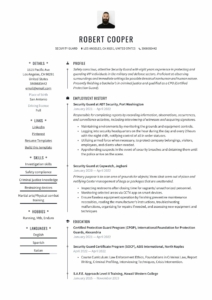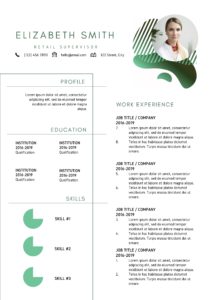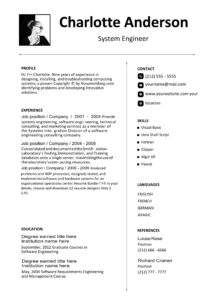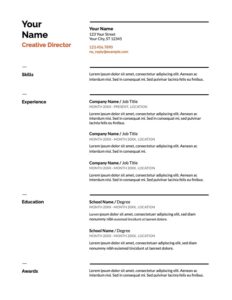
Cover letter, executive summary, resume introduction, candidate missive. If there is one activity proving to be more daunting or frustrating than compiling a CV, it is probably writing a well- presented cover letter.
The debate regarding cover letters makes for compelling arguments and full-on social media fights these days. Many blogs, articles, and how-to guidelines have been writing on the topic for decades.
Some talent professionals say to do, others say don’t, and candidates feel damned either way. A controversial topic nevertheless which require less covering and more comprehending to unpack the real purpose of what a cover letter can and cannot accomplish.
Will an executive summary get you the job? Probably not, but it may land you an interview. On the other hand, a cover letter may stack the odds against you if not constructed properly. Do you err on the safe side and submit just your resume, or do you include a write-up summary and hope for the best?
PRO-COVER-LETTER
“I read every cover letter I receive.” – CEO, Fortune 500 company
The advocates for cover letters cite left-field, unique and punchy candidate summaries as the driving forces behind interview invitations and job offers. According to them, cover letters should be mini-biographies to present experience, accomplishments and skills value-add. All packed into 2-3 paragraphs enticing the viewer to read the rest of the resume.
Apart from the primary attention-grabbing purpose of a cover letter in response to job advertisement you could also apply it to spice up your social media profiles. A summarised version of your cover letter information may serve as an introductory commentary for the typical ‘’tell me about yourself ” questions at networking events or during interviews.
The cover letter purists encourage customization and authenticity of candidate bios.
ANTI-COVER-LETTER
“I have not read a cover letter in four years.” – CEO, global consulting firm
The anti-cover letter brigade has strong views about cover letter content. A waste of time, boring, generic containing redundant information and an entirely useless exercise pretty much sums up these, not so rosy sentiments.
Allan Jones, Chief Marketing Officer a from ZipRecruiter subdues cover letters to ‘’uninspiring copy-paste form letters which have not evolved in 50 years”.
Some talent influencers go as far as expressing concerns that shoddy candidate bio’s riddled with mistakes and useless information receive only one click, and that is the DELETE button. No FORWARD, No REPLY, just bye-bye to your interview prospects.
Anti-cover letter lobbyists caution strongly against superficial and “one size fits all” applicant summaries.
IS A COVER LETTER NECESSARY?
The hiring jury is still out. No consensus exists on whether a cover letter boots your chances for an interview or in fact increases the possibility of a decline response (or no response for that matter).
Rather be safe than sorry and include a cover letter with your job applications, however, make an effort to present something read-worthy, not yawn-inducing.
AUTHENTICITY – Tell, don’t sell
- A superficial account of your title, duties and the money you expect as the introduction to your resume, will hit the recycle bin quicker than you can say ‘’decline’’.
- Avoid phrases like hardworking, adaptable and dedicated. You are writing an executive summary, not a business reference. The same goes for overselling your skills like “I am the best salesperson you will ever hire” or “clients stick to me like glue” (by the way these are real-life examples).
- Your cover letter should tell (not sell) your story with an honest recollection of you are as an individual, as a professional and your motivation to secure a career at that specific company.
- A conversational tone (grammar rules please) will engage the reader as opposed to big words that make you seem disingenuous.
CUSTOMIZATION – Acceptable to exceptional
- Customizing your cover letter to include WHY you are interested in the specific company or position shows that you are willing to make an effort during the application process. Yes, this is extra work for you now, but the result will be additional interviews too.
- Have a bit of fun too: if they are known for their superior coffee stations or break rooms with pool tables, mention that to add a bit of quirky humor. A smiling hiring manager is more likely to move your application to the shortlisting pile.
- A one size fits all cover letter to “spray and pray” over to every company may seem quicker, but then prepare yourself to wait infinitely for feedback. Instead opt for a super cool 60-second video bio, that you can submit with your bulk applications.
A COVER LETTER IN ONE, TWO THREE
- One – An introductory overview of WHO you are professionally and as an individual, highlighting a key strength or accomplishment (not who you are on Friday nights at the club).
- Two – WHAT you are looking for in your next career move to provide clarity and poise to your application (money talk is a no-no).
- Three – The punchline answer to WHY them (your reasons for applying to that specific organization).
COVER, NO. UNCOVER, YES
The ambiguity of the term cover letter may indicate covering up, hiding and masking your real self for the sake of securing an interview or employment offer.
Perhaps we should change the expression to reflect its true purpose: A genuine candidate proposal to uncover, express and explain your unique attributes, experience, and motivations to hiring authorities.
What is YOUR story going to be?




